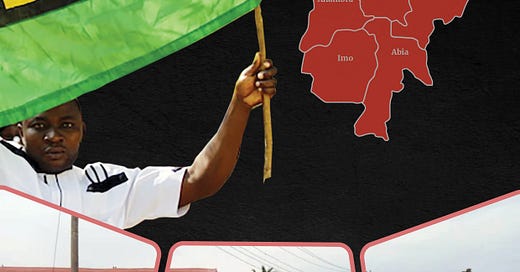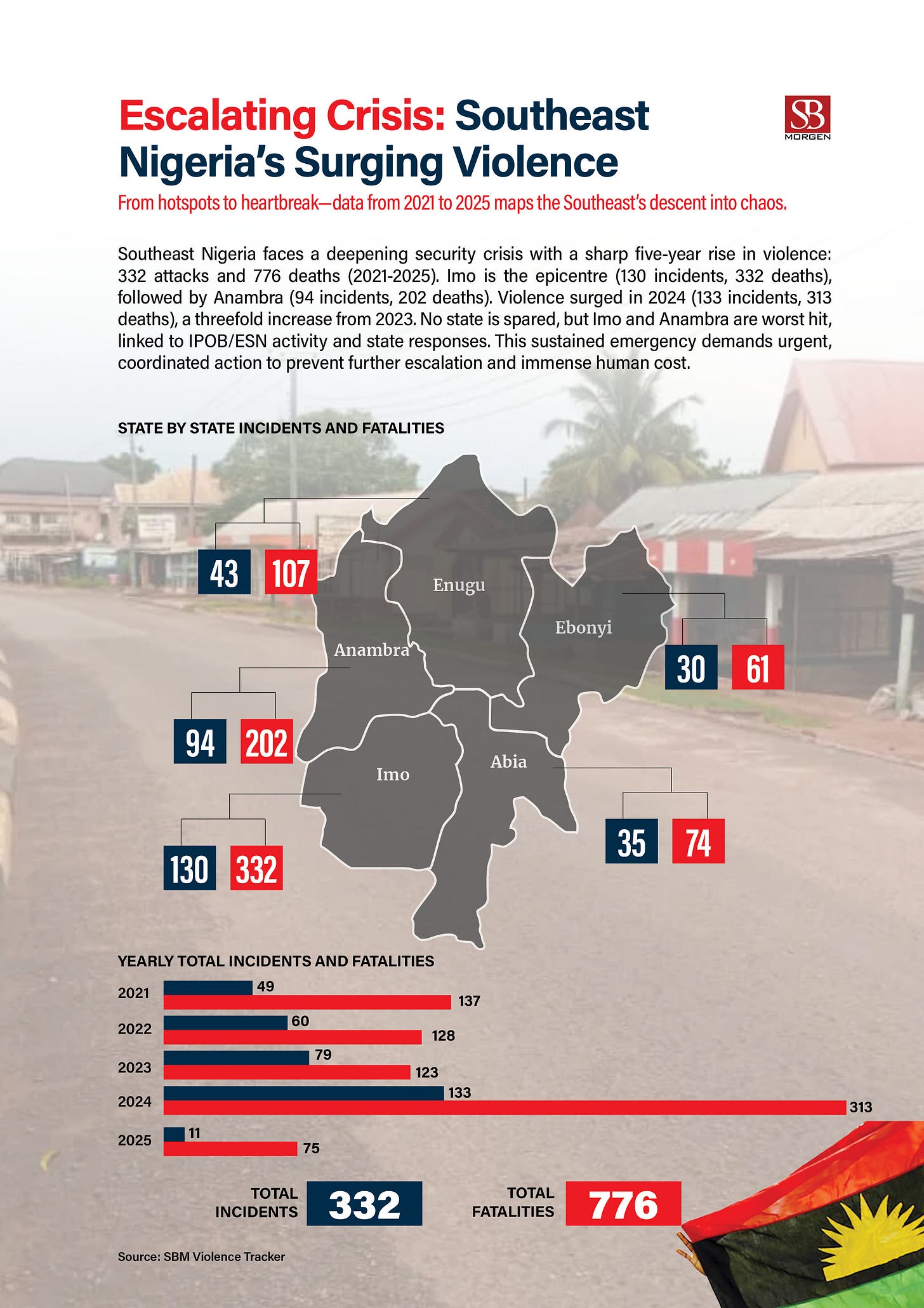Four Years of Disruption: Unmasking the Impact of IPOB’s Sit-at-Home Order in Southeast Nigeria
Since August 2021, IPOB's "sit-at-home" order in Nigeria's Southeast has caused severe economic damage ($4.75B loss) and displaced thousands, fuelled by militant violence and government responses.
By August 2025, it will have been four years since the Indigenous People of Biafra (IPOB) introduced its sit-at-home order across Nigeria’s Southeast. Initially intended as a weekly protest demanding the release of its detained leader, Nnamdi Kanu, the action, first observed on 9 August 2021, has since evolved into a recurring and deeply disruptive phenomenon. IPOB, a separatist group seeking the restoration of the defunct Republic of Biafra, draws on decades-old grievances of marginalisation following the Nigerian Civil War. Kanu’s re-arrest in mid-2021 reignited these sentiments, prompting the movement to formalise the Monday shutdowns.
Though the sit-at-home protests began as symbolic acts of civil disobedience, they quickly took on a more coercive character. Compliance was initially high, largely driven by fear and sympathy. However, recent surveys show that only around 29% of residents actively support the directive, with many observing it out of concern for their safety. Violent enforcement by armed actors—often described as “unknown gunmen”—has fuelled a growing atmosphere of insecurity, targeting those who attempt to resume normal activities on designated days.
The economic impact on the region has been severe. Southeastern commercial hubs such as Onitsha and Ariaria have seen near-total shutdowns on Mondays, paralysing local trade and disrupting supply chains across the country. Estimates suggest the region has lost over ₦7.6 trillion within the first two years alone, while the transport sector has reportedly suffered daily losses of up to ₦13 billion at the height of the protests. The education sector has also been badly affected, with students missing crucial classes and national examinations, including WAEC and NECO, further jeopardising long-term human capital development.
Founded in December 2020, the Eastern Security Network (ESN) was set up by IPOB in response to what it described as the Nigerian government’s failure to safeguard the lives and property of Igbo people. According to IPOB, the ESN’s purpose was to protect rural communities from armed groups, including Fulani herdsmen, who were allegedly destroying farmland and endangering lives. However, the group has since been linked to violent clashes with state security forces, often using guerrilla-style attacks on police and military facilities, further escalating the insecurity in the region.
More than 700 people have reportedly been killed in IPOB-related violence between 2021 and 2025. Imo State has seen the highest number of incidents and fatalities, while Ebonyi has recorded the lowest. The government’s heavy-handed response, through military operations like Python Dance and Crocodile Smile, has drawn criticism for alleged rights violations, further straining relations with local communities. A long-term solution will require more than force; it demands structural reforms, meaningful political dialogue, and genuine efforts to rebuild trust in the Southeast.
Download complete report (52 pages)






They don't have businesses in the SE, they are not even in government, assuming those in government care about the people. I have no idea what IPOB is actually about, but they claim they are freedom fighters. Freedom from what exactly and from who exactly, they have not been able to say, aside from claiming "Fulanis hate us", " Yorubas are enemies", "Ohaneze leaders are gay and Fulani slaves".
Meanwhile, there is Ohaneze in every LGA, and they did not join to make Ohaneze what they want it to be from within, or pay their dues so they can have a stake to make demands. They are not politically active to contribute to changing the political outlook of Ndigbo. They claim they are fighting for a better Igbo nation, but they don't hold the thieves within the Igbo nation to account.
Hopefully, one day, someone will explain to me the reason why the IPOB are doing what they are doing and what it is that they actually set out to achieve.
Could SBM also cover the disruption metted out by the long ignored and unneeded extortion road blocks and informal tax collectors